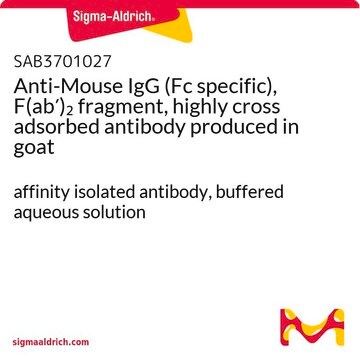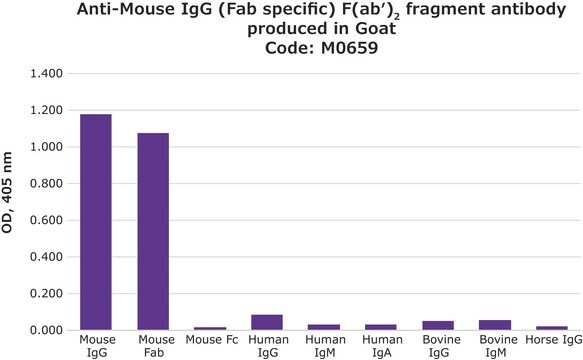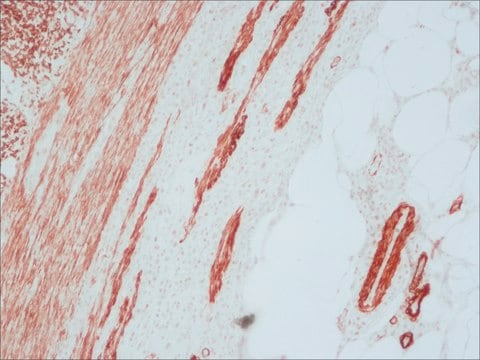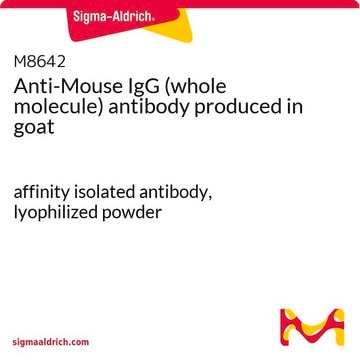M4280
Anti-Mouse IgG (Fc specific) antibody produced in goat
2.0 mg/mL, affinity isolated antibody
Synonym(s):
Anti Mouse Fc Antibody, Anti Mouse Fc Antibody - Anti-Mouse IgG (Fc specific) antibody produced in goat
About This Item
Recommended Products
biological source
goat
Quality Level
conjugate
unconjugated
antibody form
affinity isolated antibody
antibody product type
secondary antibodies
clone
polyclonal
concentration
2.0 mg/mL
technique(s)
indirect ELISA: 1:20,000
shipped in
dry ice
storage temp.
−20°C
target post-translational modification
unmodified
Looking for similar products? Visit Product Comparison Guide
General description
Immunogen
Application
- enzyme-linked immunosorbent assay (ELISA)
- flow cytometry
- immunoprecipitation
- immunoblotting
Biochem/physiol Actions
Other Notes
Physical form
Preparation Note
Disclaimer
Not finding the right product?
Try our Product Selector Tool.
Storage Class Code
12 - Non Combustible Liquids
WGK
nwg
Flash Point(F)
Not applicable
Flash Point(C)
Not applicable
Choose from one of the most recent versions:
Certificates of Analysis (COA)
Don't see the Right Version?
If you require a particular version, you can look up a specific certificate by the Lot or Batch number.
Already Own This Product?
Find documentation for the products that you have recently purchased in the Document Library.
Customers Also Viewed
Our team of scientists has experience in all areas of research including Life Science, Material Science, Chemical Synthesis, Chromatography, Analytical and many others.
Contact Technical Service















